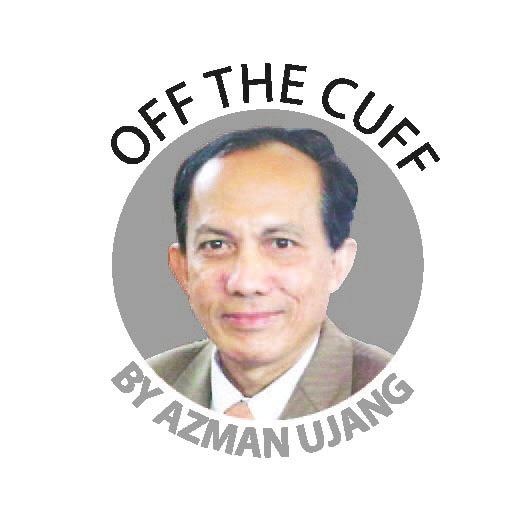“Don’t ask what your country can do for you but ask what you can do for your country.”
John F. Kennedy’s most famous quote among the many that he uttered during his tragic short term as the 35th president of the United States in the early 1960’s is still fondly remembered especially by people of my generation.
Kennedy, who was assassinated on Nov 22, 1963 after being in office just over two years, was widely regarded as the most charismatic US president in modern times.
His assassination came two months after the formation of Malaysia and as we celebrate the 56th Malaysia Day three weeks away, let us ponder hard on the quote and what we should do about it.
There’s definitely so much that we can chip in to move our nation forward but this week, I want to focus on what Malaysians from all walks of life can do to help bring down our alarming cost of healthcare.
Health Minister Datuk Seri Dr Dzulkefly Ahmad has warned that our public sector healthcare costs could rise exponentially to as high as RM80 billion annually in the 2020’s or about double currently if the rate of Malaysians falling sick continues unabated.
This figure is very alarming to say the least and could very well become unsustainable over the short term and speaks volumes of the notion that Malaysians are by and large an unhealthy lot.
In layman’s terms, most Malaysians are poor guardians of personal health and what is urgently needed to be put in place are specific and effective plans to reverse this potential financial time bomb and prevent it from exploding.
No one, not even the Health Ministry, can deny that all this while, the planning has gone into building more and more clinics and hospitals, and other expensive facilities to cater for the increase in population.
We have at least 145 government hospitals and thousands of outpatient clinics, and in the last few decades private hospitals have sprouted up all over the place and private clinics are found at virtually every nook and corner in urban areas.
This is excellent from the curative point of view which is why Malaysia’s healthcare system is recognised internationally as among the world’s best.
Many people from developed nations envy us because while their medical treatment is expensive, Malaysians get theirs virtually free at government hospitals or at 97% government subsidy.
It’s public knowledge, however, that private hospital bills can cost a bomb but to avoid the long queues at government hospitals, health insurance has become a necessity for many people who can afford it.
Private hospitals, too, play an important role as the queues would be even more intolerable without them.
To walk the talk on Kennedy’s time-honoured call, we as citizens must do serious soul-searching to stay as healthy as we can because it is obvious that things cannot remain as they are.
If all stakeholders put more effort into prevention, then almost automatically the huge amounts spent on treatment or the curative budget will be more manageable. It goes without saying that prevention is better than cure.
It makes for a much happier individual or family life if we could also avoid going to hospitals or being hooked on medicines.
To get a better view of why Malaysians are generally unhealthy, let us hear from William Ng, who for 42 years has been the president of the Association of School Canteen Operators.
He has over the years been going round to over 4,000 schools throughout the country and held over 1,500 road shows to get school canteens and authorities to stop the sale of junk food in schools.
“I must admit here that I have failed in my mission. Actually the situation has become worse as junk food is still widely available in schools. If not at canteens, food and carbonated drinks are sold at vending machines either at the school bookshops or cooperatives,” he told me.
To add to this, even teh tarik is sold in schools, not to mention by vendors outside the school compound.
This is something for Education Minister Dr Maszlee Malik to focus on to prevent obesity and other ailments among students. And certainly, parents, too.
Teh tarik that many Malaysians regard as a national drink is very sweet and as doctors can tell us, is bad for health as it leads to diabetes and high blood pressure.
Next are the civil servants who by right could become healthy lifestyle role models. But they are not.
It was revealed some years ago that it costs the government about RM2 billion annually to pay for medicines for its 1.6 million civil servants. If we add the cost of their hospitalisation and after-care, it’s much more.
At the end of the day, we all owe it to the nation and to ourselves to make our healthcare truly healthcare and not sickcare as it actually is now.
Comments: letters@thesundaily.com














